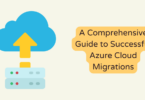
A server is a computer that stores, sends, and receives your website’s and app’s data and files. An app server in particular installs, operates, and hosts apps for the end-users. Your business would require a hosting platform for its self-hosted applications. There are multiple hosting platforms that you can choose from. The cost you incur to run a server for your app would depend on your hosting platform.
The Importance Of A Hosting Platform
Users expect high speed, security, and reliability from apps and websites. To meet these needs, you need to select the hosting package that best suits your website and app.
What Are Your App’s Requirements?
Before you choose a server hosting for your app, you have to understand your app’s requirements.
If your app serves large data like audios and videos for your users to send and receive, it would require more memory, server CPU, and disk space. This kind of app would cost you more than the one that uses static and text-based data.
Apps that quickly use up a lot of storage space to house enormous amounts of videos and images for the users are costly for businesses due to their high server space requirements.
Users of mobile apps utilize server resources such as RAM, CPU, and disk space. The hosting platform would be more expensive for you if your app’s active users use a lot of these resources on average.
The hosting platform you choose should take into account the features of your app.
Dedicated Server
Dedicated servers allow you to use the entire server to yourself. They deliver superior speed, control, security, and customization. However, you will have access to finite resources that consist of fixed storage and compute capabilities.
Cheap dedicated servers can cost you $10-$20 a month. On the other hand, enterprise-grade dedicated servers can cost thousands of dollars per month. Depending on the server specifications, the age of its components, and its quality, these servers can be moderately or extremely powerful. You can also combine multiple dedicated servers for your app.
Shared Hosting
In this hosting, multiple sites use the same server. Depending on the hosting plan, your site uses only limited server resources. A particular section of the server hosts your website files. Such servers can host hundreds of sites at once. Since many users cover the server’s overall maintenance cost, their monthly charges might amount to less than $5. This hosting platform is ideal for websites that experience low traffic. So if you run a small business or a personal blog, shared hosting is the most economical option for you.
However, if an application on the server starts consuming excessive memory or bandwidth, fewer resources would be available for the neighboring app. There is nothing that you, as a user of the server, can do in this situation. Furthermore, if your app is causing performance issues for the others on the server, you might be removed from the hosting platform.
Virtual Private Server (VPS) Hosting
If your business has outgrown shared hosting, you can try VPS hosting. VPS splits one server into multiple individual virtual servers using virtual technology. By doing this, one physical hardware can function as separate servers. Virtual server users do not have to share data, RAM, or CPU with the other users.
As compared to shared hosting, VPS gives more power to the users without charging as much as a dedicated server.
Cloud Hosting
Cloud hosting uses multiple servers to maximize uptime and balance the load. Instead of a single server, a centralized pool supplies resources to your app. So, if one server from the cluster fails, another one from the same cluster takes over to keep things running. If more machines are added to the network, more resources get available to the cloud. Without direct management, you get on-demand access to computing power and data storage. This enables easy scaling for businesses.
As compared to dedicated servers, cloud servers tend to have lower entry costs. However, you will have to pay more once you start utilizing more resources after scaling.






